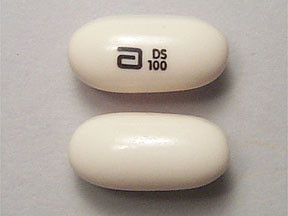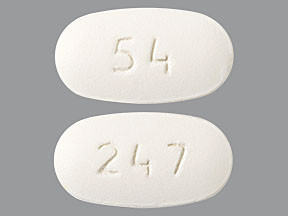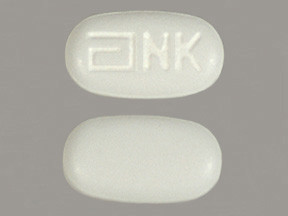RITONAVIR - ORAL
PHONETIC PRONUNCIATION: (rye-TAWN-uh-veer)
COMMON BRAND NAME(S): Norvir
GENERIC NAME(S): ritonavir
Uses
USES: This drug is used with other HIV medications to help control HIV infection. It helps to decrease the amount of HIV in your body so your immune system can work better. This lowers your chance of getting HIV complications (such as new infections, cancer) and improves your quality of life. Ritonavir belongs to a class of drugs known as protease inhibitors. It increases ("boosts") the levels of other protease inhibitors, which helps these medications work better. Ritonavir is not a cure for HIV infection. To decrease your risk of spreading HIV disease to others, do all of the following: (1) continue to take all HIV medications exactly as prescribed by your doctor, (2) always use an effective barrier method (latex or polyurethane condoms/dental dams) during all sexual activity, and (3) do not share personal items (such as needles/syringes, toothbrushes, and razors) that may have contacted blood or other body fluids. Consult your doctor or pharmacist for more details.
How to use RITONAVIR - ORAL
HOW TO USE: Read the Patient Information Leaflet provided by your pharmacist before you start taking ritonavir and each time you get a refill. If you have any questions, consult your doctor or pharmacist. Take this medication by mouth with a meal as directed by your doctor, usually 1 to 2 times daily. Take ritonavir at the same time(s) as your other HIV protease inhibitor. Swallow the tablet form of this medication whole. Do not crush, chew, or break the tablets. The dosage is based on your medical condition, response to treatment, and other medications you may be taking. Be sure to tell your doctor and pharmacist about all the products you use (including prescription drugs, nonprescription drugs, and herbal products). For children, the dosage may also be based on their body size. For the best effect, take this medication at evenly spaced times. To help you remember, take this medication at the same time(s) every day. The tablet and capsule forms of this medication may deliver different amounts of medication. Do not switch between the tablet and capsule forms without your doctor's permission and directions. It is very important to continue taking this medication (and other HIV medications) exactly as prescribed by your doctor. Do not take more or less of this drug than prescribed or stop taking it (or other HIV medicines) even for a short time unless directed to do so by your doctor. Skipping or changing your dose without approval from your doctor may cause the amount of virus to increase, make the infection more difficult to treat, or worsen side effects.
Side Effects
Precautions
Interactions
Overdose
Images

- color
- white
- shape
- oblong
- imprint
- logo and DS 100
Reviews
Faq for RITONAVIR - ORAL
Ritonavir is an antiviral medication that is used in combination with other drugs to treat human immunodeficiency virus (HIV) infection. It helps to reduce the amount of HIV in the body, improve immune system function, and prevent the progression of HIV-related diseases.
Ritonavir is usually taken by mouth with food, as directed by your doctor. The dosage is based on your medical condition and response to treatment. It is important to take ritonavir regularly to maintain the effectiveness of the medication.
Common side effects of ritonavir may include nausea, vomiting, diarrhea, headache, dizziness, and fatigue. It may also cause changes in body fat distribution or increased cholesterol and triglyceride levels. Inform your doctor if you experience any severe or persistent side effects.
Yes, ritonavir can interact with a wide range of medications. It may increase or decrease the levels of other drugs in your bloodstream, which can affect their effectiveness or increase the risk of side effects. Inform your doctor about all the medications you are taking, including over-the-counter drugs and herbal supplements.
Ritonavir should not be used if you have a known allergy to it or if you are taking certain medications that may interact negatively with it. It may also have an impact on the liver function, so regular liver function tests are crucial. Pregnant women or those planning to become pregnant should consult their doctor before taking ritonavir.
No, ritonavir cannot cure HIV infection. It is used as part of a comprehensive treatment regimen to control the virus and manage HIV-related diseases. It is important to continue taking ritonavir and other prescribed medications as directed by your doctor for the best outcome.
If you miss a dose of ritonavir, take it as soon as you remember. However, if it is almost time for your next dose, skip the missed dose and continue with your regular dosing schedule. Do not double the dose to make up for the missed one.
Warning
WARNING: Ritonavir may interact with many different types of medicines, in some cases causing severe (sometimes fatal) reactions. Consult your doctor or pharmacist about which medications should not be taken with ritonavir. (See also Drug Interactions section.)
Disclaimer
IMPORTANT: HOW TO USE THIS INFORMATION: This is a summary and does NOT have all possible information about this product. This information does not assure that this product is safe, effective, or appropriate for you. This information is not individual medical advice and does not substitute for the advice of your health care professional. Always ask your health care professional for complete information about this product and your specific health needs.


No Reviews Yet